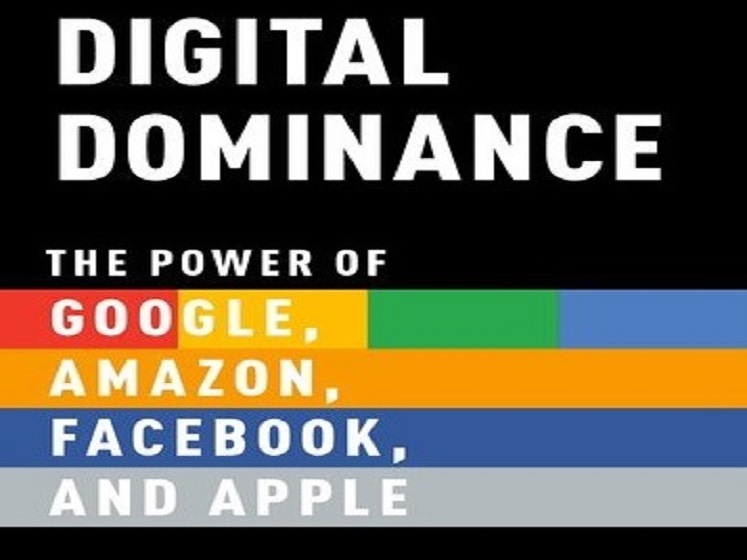 Ten years after the global banking collapse, is 2018 the year when Big Technology faces its own existential crisis? LSE’s Charlie Beckett, who is leading the LSE’s Truth, Trust and Technology Commission, asks whether the digital giants are making the same mistakes as the bankers a decade ago.
Ten years after the global banking collapse, is 2018 the year when Big Technology faces its own existential crisis? LSE’s Charlie Beckett, who is leading the LSE’s Truth, Trust and Technology Commission, asks whether the digital giants are making the same mistakes as the bankers a decade ago.
Ten years ago, not all financial institutions were the same or equally culpable, though the causes and impacts of that economic disaster were systematic, widespread and long-lasting. That sector struggled to respond to public anger in a way that has left a legacy of mistrust with those brands and, arguably, with the kind of capitalism they represented.
The post-script of Philip Delves Broughton’s ‘What They Teach You At Harvard Business School’, a relatively friendly critique of corporate culture written in 2008, is aghast at the response of the business elite to the disaster that was largely of its own making. Instead of humility and intellectual reappraisal, the professional vanguard of mid 2000s hyper capitalism still claimed that they alone had the leadership to take the world out of the depression they had created:
“…like a drink driver emerging from a wreck asking for the keys to the police car so he could drive home.”
Today, we have major tech companies ranging from social (Facebook) to retail (Amazon) to data search (Google). The public problems they face may not involve such a catastrophic business collapse or wider economic ruin, but they share a common moment of high structural risk. The particular hazards may vary, as have their responses, but like the bankers of the early 21st century, they are finding it hard to think outside of the dynamics that created the concerns.
The charge sheet is mounting against Facebook in particular, but also against the other digital behemoths. With power comes responsibility, and these relatively young organisations are struggling to deal with it. So society is stepping in. The age of unregulated social media is, apparently, over. It is one of the core issues for the LSE’s Truth, Trust and Technology Commission that will seek to set out an agenda for the public information role of news and social media. But before we start creating new rules, we need to have an honest and open conversation amongst all parties about what the problem is and what has caused it.
The different companies such as Google, Twitter, Amazon, Apple, Uber and Airbnb, have responded with varying degrees of openness to the growing chorus of anger around topics such as (not) paying taxes, labour exploitation, misinformation, fostering propaganda, offence, polarisation, and mental ill-health. They all have different histories and corporate identities and varying capacity to understand and engage with public disquiet.
But they do seem to have in common an insistence that any downsides to their power should be ameliorated according to their own principles and purposes.
Let’s return to that rather clumsy analogy between the financial services industries of 2008 and the Tech giants of 2018. Like their banking and consulting forbears the Tech execs are often the brightest and best of their (usually US) generation. They have wrought extraordinary innovation and created massive value as well as whole new infrastructures for social and economic exchange and creation.
They are an elite group by education, relatively homogeneous in identity and with a strong, quite insular professional culture. It worked for them (and for millions of users) so it’s not surprising they don’t want to throw away the ideological recipe. They garnered vast rewards for a combination of relatively simple (e.g. first mover advantage) and often complex (e.g. high level code, design and adaption) entrepreneurship.
Their meteoric rise was fuelled by vast pools of relatively cheap capital, a compliant news media (especially the Tech Press) and a lack of regulatory oversight. The SV/VC culture thrives partly because of its lack of political or social context. In return politics and society didn’t pay much heed – until now.
The Tech companies have vast resources. New technologies such as AI and blockchain, never mind the competition from their rivals in China and elsewhere, mean that the forces of digital disruption will grow in significance. The possibilities for increasing harm as well as benefit will grow, too.
What would be really clever would be if they could add sociological and political intelligence to their undoubted commercial and engineering talent.
Likewise, the law-makers, lobbyists and analysts in politics, the media or academe also need to understand better the peculiar culture and ideology of Tech. There has been too much moral panic and knee-jerk response to the particular. Not enough attention has been paid to what is really changing strategically and structurally.
Policy interventions in social media are already happening. Call it ‘regulation’ if you wish. But as the NYC Media Lab’s Justin Hendrix has pointed out, these discussions need to include those companies and they need to be ‘thoughtful’. We are building an infrastructure for public information that must both sustain and adapt to our developing digital age. Few of these problems have easy ‘solutions’ but there have to be ways of managing the forces at work in better ways.
It will require compromise as well as practical applications. But ultimately, from my experience dealing with a range of people from civil society, technology companies, politics and the media, the main obstacles are cultural and intellectual as much as commercial or technical. With a subject this important, the chief arbiter must be public interest but how we define that requires an investment in imagination as well as integrity and expertise. The bankers blew it, I hope the technologists don’t.
Update:
It turns out that a banker, Ana Botin of Santander has written a piece along similar lines:
Silicon Valley can learn from our mistakes. With hindsight, we can now see that before the financial crises, the banking sector suffered from all sorts of issues. “Groupthink”: we told each other that the economic cycle had been broken. “Short-termism”: too many people chased short-term profits, not long-term sustainable growth. “Myopia”: we lost sight of our systemic significance and what would happen if we got it wrong. “Complexity”: too many banks became so complicated, and dealt in such complex products, that their senior management could not predict outcomes. “Hubris”: we convinced ourselves that we understood all the risks in banking and that they were all under control.
Follow Facebook’s head of Newsfeed Adam Mosseri if you want a good example of someone from the tech companies trying to engage: @mosseri
This post represents the views of the author and not those of the Media Policy Project or the LSE. This post was originally published on the LSE Polis blog.






